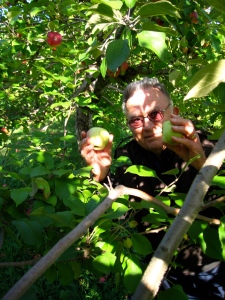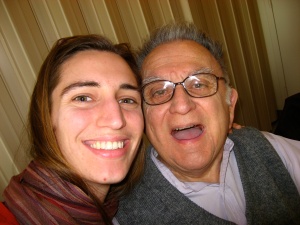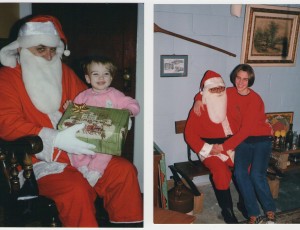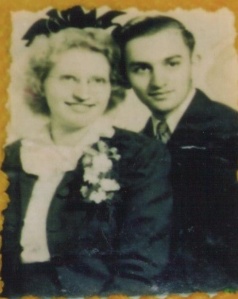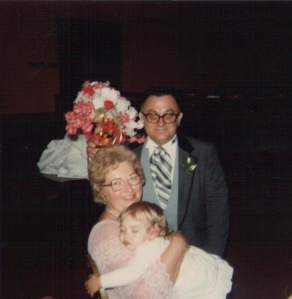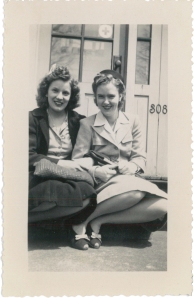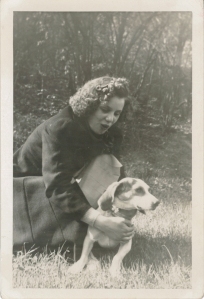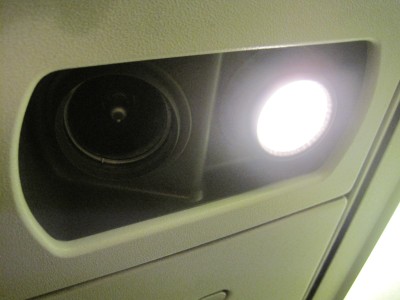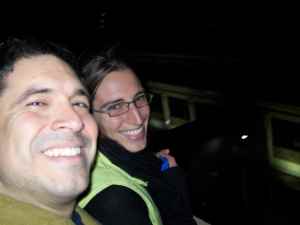Months before his death and shortly after my Nana’s, I listened to my Popop talking with a fellow resident of the senior apartment housing where he had lived for the past few years. Suddenly though, I listened as if for the first time and found myself in awe of a skill I had never really recognized in him before–his bilingualism. Sure, he would joke around from time to time with us with a few Pennsylvania Dutch words, and I knew that they always used the language to yell at each other over the table while playing cards when I was a kid. However, here in the lobby, I listened as the two men moved flawlessly between English and Pennsylvania Dutch (or German, as the dialect actually is). They wove together sentences in the two languages, changing on a dime, and just as seamlessly, flowing mid-sentence back into the other language. I was reminded of my Latino students in the South Bronx, who wove together strands of English and Spanish like silver threads in a South American tongue, twinkling like silver bells on the tongue. You were never quite sure where one language began and the next one ended. Here before me were two elderly men with the same gift given by generations of Pennsylvania Germans who settled in southeastern Pennsylvania, farming the land and building communities. Once a college friend who happened to meet my Popop even asked where he was from in response to hearing his accented English.
In fact, my Popop, Willard G. Bachman, was born and raised in Lehigh County, Pennsylvania–and never in his 86 years lived anywhere else. He knew the back roads of Lehigh County like a blind person knows her own home, and he often took us on adventurous Sunday afternoon drives over country dirt roads as my Nana yelled at him not to scratch the car! He had leathery skin from years of working outdoors as an independent contractor–putting in windows, painting, concrete. While his sense of business was weak, his care for the tools was painstaking. I learned how to judge a good paintbrush from him and how to make sure it was thoroughly cleaned. (However, despite his best efforts, I never quite succeeded in keeping my paintbrushes as ‘clean’ as his were when painting.) This was during a two-week long adventure in painting my other grandfather’s house. Two weeks. Four grandparents. One house. It was at times as trying as it was rich. I could only shake my head in wonder and exasperation when turning the corner to see both of my 80+ year old grandfathers trying to deal with scaffolding on their own!
Despite his impish appearance and everyone else’s delight at the “funny old man,” we in the family knew the truth. He was a hard, racist, difficult person who consistently disrespected the women closest to him with ridicule, criticism, and contempt. During a period of my adolescence, I remember hating him–hating the way he treated his family. Of all of his expressions, the one I think of first is “don’t talk so dumb.” His idea of asking for a drink at the table was to pick up his empty glass and wave it under your nose. He pinched and poked his wife, and other females in his family. He seemingly criticized almost everything: food, clothing, how one played cards. It was a “do-it-right-the-first-time” philosophy, which left no room for failure or missteps. (It wasn’t until about a year ago as I was reflecting on family stories with my aunt and uncle that I thought to ask if he had ever been more than just verbally and emotionally abusive. As it turns out, there is one time in my aunt’s memory during which he came very, very close to breaking my Nana’s arm–all over her refusal to make him beets at 11 o’clock at night. Had it not been for his son Larry, around 14 at the time, who stepped in and stopped him, things may have ended differently.)
For a long time I resented him and his behavior. And then I made my own peace. I learned to ask him what he wanted if he waved a glass at me, reminding him to use words if he needed something. I learned to be goofy with him and deflect potential criticism through inane conversation. I learned, ultimately, how to interact with him while maintaining and feeling respected. I learned to make my peace.
In his last years, he developed Alzheimer’s which slowly left him more and more confused, unable to find his own apartment on his own, unable to drive, unable to remember answers to questions that were just asked, unable to play cards or follow suits. So when my Nana died suddenly of a massive stroke in March 2011, my Popop’s universe was irreversibly shaken. The woman with whom he had “for better or worse” spent over 65 years of his life–his single point of reference–was no longer there. And in this brief period, I had a glimpse of a man I might have known. A man softened and broken by grief. As I sat next to him during the viewing preceding the funeral, he started telling me all about his son Larry, a son who had died suddenly of spinal meningitis at 21 years old. An uncle I have never known except through limited stories and pictures. To understand the enormity of this act is to understand that I have no recollection of my Popop ever talking about Larry, rarely evening metioning Larry, having a picture displayed of Larry. From family stories, I know that when Larry died, they were told that they needed to move on. There was no space and time for grief, no respect for emotions, and no allowance for asking for help. So on the day of my Nana’s funeral, my Popop finally grieved–my Nana’s death the final tipping point perhaps of decades of loss and sadness swelling behind the floodgates. I had never seen him cry, and I had never heard him talk, really talk, about Larry. That day I bore witness to both. He told me how smart Larry was, how good he was with technical things, and how he died. I realized that I was sitting next to a broken man, a proud parent, who may have never once told his son how proud he really was of him.
The quietest of moments happened, however, as I said goodbye at the end of the weekend. Going over to the armchair where he was sitting, I reached down and gave him a hug and told him into his ear that I loved him. And for the first and only time in my life from this man, I heard the same words in return: “I love you, too.”
Each family has its scars, often carved out away from public life in the privacy of their own homes. Recently, I have been reading the epic novel Cutting for Stone by Abraham Verghese. I was reminded of a passage early in the book as I sat down to write this post. The narrator, a doctor, is commenting on his twin brother’s (also a doctor) perspective on surgery being about “fixing holes.”
But there’s another kind of hole, and that is the wound that divides family. Sometimes this wound occurs at the moment of birth, sometimes it happens later. We are all fixing what is broken. It is the task of a lifetime. We’ll leave much unfinished for the next generation. (“Prologue – The Coming”)
To a lifetime of healing….
